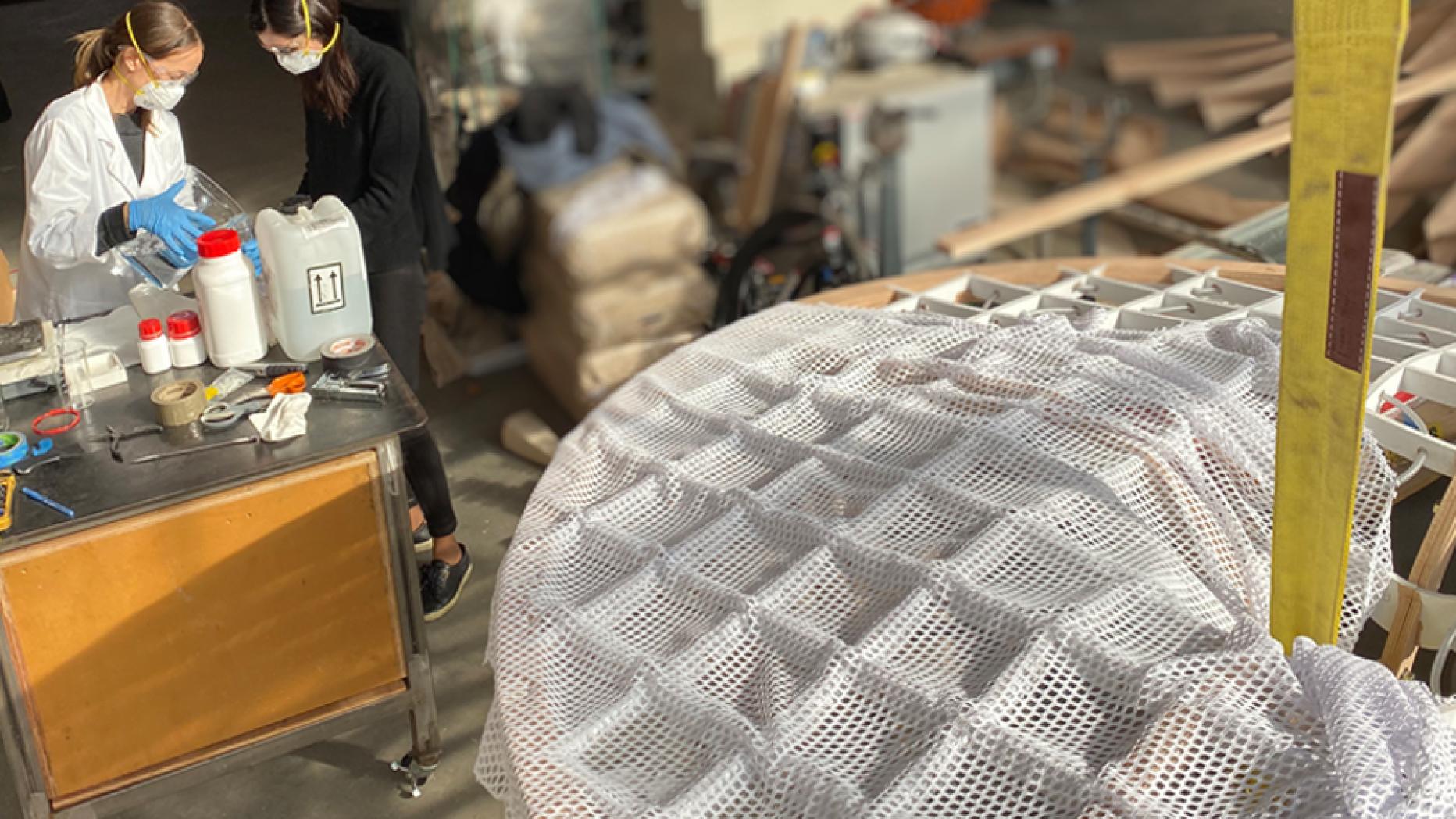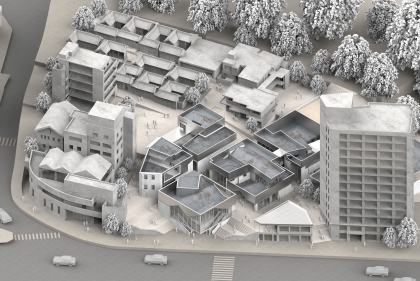The Weitzman Design for Climate Commitment: Resilience, Justice, Decarbonization, and Creativity

Thermal Architecture Lab research examines the building’s form and materials from the perspective of thermodynamics, as active agents in the transfer of heat between the human body and its environment.
Close
Thermal Architecture Lab research examines the building’s form and materials from the perspective of thermodynamics, as active agents in the transfer of heat between the human body and its environment.
Polyhedral Structures Lab research connects architecture, structural engineering, computer science, mathematics and material science to enrich architectural geometry and to reconcile function, form, and technology.
A proposal for the development of Poplar Point in Washington, DC--an area with a high poverty rate that faces unique threats from climate change--created for Nando Micale's Fall 2021 City & Regional Planning studio.
Students in the Green New Deal studio imagined ways that workers could be employed in the service of decarbonizing the economy and helping the forests of Appalachia to thrive. The Fall 2020 studio was led by Billy Fleming, the Wilks Family Director of The Ian L. McHarg Center for Urbanism and Ecology.

 View Slideshow
View Slideshow
